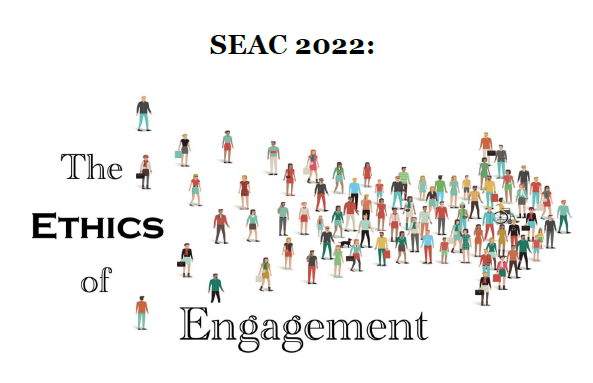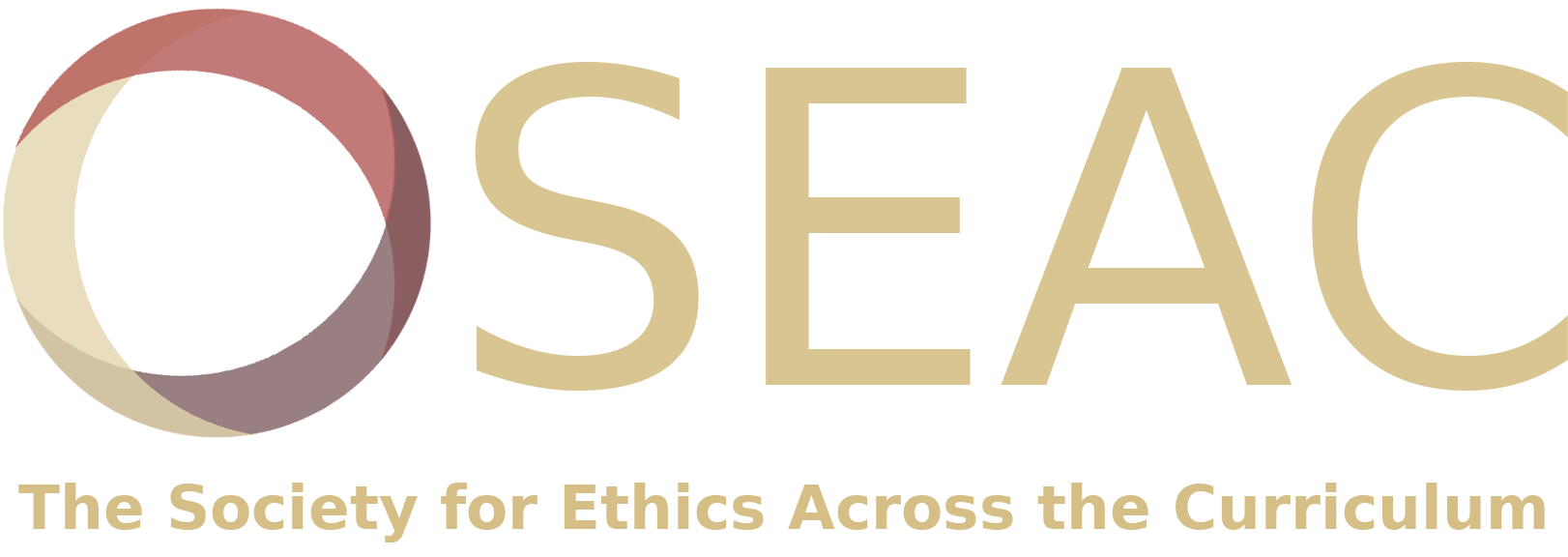
Concurrent Session 4C
Location
Ford Ballroom C, The Inn at Ole Miss
Start Date
7-10-2022 9:00 AM
End Date
7-10-2022 10:45 AM
Description
- Cultivating ‘Mature Trust’ in Moral Leaders Despite a Disrupted and Diffuse World / Laine Walters Young, Vanderbilt University
Trust so often is considered foundational to leadership studies and definitions of good leadership (Mendonca and Kanungo 2007; Caldwell 2012; Schmitz 2011) that it is sometimes assumed and taken for granted in the areas of moral and change leadership (Franklin 2019). In our postmodern era, trust—mature, authentic, and cosmopolitan conceptions of trust—need to be explicitly drawn into conversations about ethical education and mechanisms for increasing ethical literacy. I outline and argue for what this might look like using the work of Solomon and Flores’ concepts of basic, mature, and authentic trust in Building Trust: In Business, Politics, Relationships, and Life (2013) and connect it to complexity science as reviewed by Raei and Rasmussen (2022) regarding creating holding environments in which those we work with can see and feel clarity of direction despite not knowing necessarily how we will get there. These ideas—of mature trust binding together a chaotic world—are connected to and underscored by the future leadership literacies of Johansen (2017) and developmental leadership practices for complex times developed by Garvey Berger (2015). I conclude by showing that explicit techniques for developing trust in postmodern complexity advance the aims in psychological safety literature about helping participants in experiential learning situations (Clark 2020; Daniels at al. 2021; Davey et al. 2020; Tschannen-Moran 2014; Zhu et al. 2019) and therefore can and should be used in many settings. - Beyond Ethical Leadership: Cultivating Moral Leadership in Higher Education / Michael Hartsock, Milliken University; Scott O'Leary, North Carolina State University; Michael Domeracki, Duke University
The current political and social tumult emphasizes the need for transformative, values-based leadership to confront new challenges, ideas, and realities. We argue that this requires reconceptualizing leadership - especially for high-achieving students who often feel tension between leadership roles and their personal and professional responsibilities. We argue this is a false dilemma. Leadership should not be viewed as a separate class of action but rather as a way of engaging in the full range of human activity. We highlight examples of moral leadership from different programs that aim to demonstrate that leaders are not just those who are most visible. We adopt a lay distinction between “ethical” and “moral” leadership. Ethical leadership recognizes and applies legal and ethical norms to current actions. Ethical leaders meet ethical standards. Moral leadership looks to the future to transform the present. Moral leadership (re)shapes the evaluative framework of a group, organization, or society. This panel demonstrates ways in which leadership happens through expression, ideation, and articulation of values. We will utilize examples from different areas of the academic experience: research, ethical debate, critical inquiry, and mindfulness-based practices to show how students can transcend stereotypical leadership and to model ways higher education can - and should - cultivate moral leadership. In the process, we will articulate a new form of moral leadership development grounded in the praxis of programs and colleges. - Strategic Realignment of a Philanthropic Foundation in Light of DEI Initiatives / José Gonzalez, Belmont University; Barry Padget, Belmont University
Community Wellness Foundation (CWF) is a fictional name for an actual foundation that distributes several million dollars each year to various local nonprofits. This case study examines efforts by the board and executive team of CWF to explore and define their beliefs and approach to equity. These intentional efforts lead to a total realignment of the mission, values and procedures of the organization, in the wake of civic and racial disruptions. In this particular example, DEI was not simply an initiative but became the catalyst for a transformational rejuvenation of the organization. This case will provide an account of how the senior-level leadership guided the organization through a reframing of its mission which then translated into specific action items. CWF made a 180-degree shift in its focus, beginning with an emphasis on supporting BIPOC led non-profits and elevating the cause of racial equity and social justice. Among some of the initiatives, minority internships were created to support diversity, and to give interns experience in developing their social justice perceptions and sensitivities. Attention was also given to more equitably distribute funding and other reputational assets among constituents. Additional efforts, focused on inclusivity, were made to ensure that disenfranchised communities were civically engaged. The ultimate goal of this realignment for health outcomes to no longer be predicted by race.
Session Chair: Dan Wueste, Clemson University
Relational Format
conference proceeding
Recommended Citation
Young, Laine Walters; Hartsock, Michael; O'Leary, Scott; Domeracki, Michael; and Gonzalez, José, "Concurrent Session 4C" (2022). Society for Ethics Across the Curriculum Conference. 24.
https://egrove.olemiss.edu/seac/2022/schedule/24
COinS
Oct 7th, 9:00 AM
Oct 7th, 10:45 AM
Concurrent Session 4C
Ford Ballroom C, The Inn at Ole Miss
- Cultivating ‘Mature Trust’ in Moral Leaders Despite a Disrupted and Diffuse World / Laine Walters Young, Vanderbilt University
Trust so often is considered foundational to leadership studies and definitions of good leadership (Mendonca and Kanungo 2007; Caldwell 2012; Schmitz 2011) that it is sometimes assumed and taken for granted in the areas of moral and change leadership (Franklin 2019). In our postmodern era, trust—mature, authentic, and cosmopolitan conceptions of trust—need to be explicitly drawn into conversations about ethical education and mechanisms for increasing ethical literacy. I outline and argue for what this might look like using the work of Solomon and Flores’ concepts of basic, mature, and authentic trust in Building Trust: In Business, Politics, Relationships, and Life (2013) and connect it to complexity science as reviewed by Raei and Rasmussen (2022) regarding creating holding environments in which those we work with can see and feel clarity of direction despite not knowing necessarily how we will get there. These ideas—of mature trust binding together a chaotic world—are connected to and underscored by the future leadership literacies of Johansen (2017) and developmental leadership practices for complex times developed by Garvey Berger (2015). I conclude by showing that explicit techniques for developing trust in postmodern complexity advance the aims in psychological safety literature about helping participants in experiential learning situations (Clark 2020; Daniels at al. 2021; Davey et al. 2020; Tschannen-Moran 2014; Zhu et al. 2019) and therefore can and should be used in many settings. - Beyond Ethical Leadership: Cultivating Moral Leadership in Higher Education / Michael Hartsock, Milliken University; Scott O'Leary, North Carolina State University; Michael Domeracki, Duke University
The current political and social tumult emphasizes the need for transformative, values-based leadership to confront new challenges, ideas, and realities. We argue that this requires reconceptualizing leadership - especially for high-achieving students who often feel tension between leadership roles and their personal and professional responsibilities. We argue this is a false dilemma. Leadership should not be viewed as a separate class of action but rather as a way of engaging in the full range of human activity. We highlight examples of moral leadership from different programs that aim to demonstrate that leaders are not just those who are most visible. We adopt a lay distinction between “ethical” and “moral” leadership. Ethical leadership recognizes and applies legal and ethical norms to current actions. Ethical leaders meet ethical standards. Moral leadership looks to the future to transform the present. Moral leadership (re)shapes the evaluative framework of a group, organization, or society. This panel demonstrates ways in which leadership happens through expression, ideation, and articulation of values. We will utilize examples from different areas of the academic experience: research, ethical debate, critical inquiry, and mindfulness-based practices to show how students can transcend stereotypical leadership and to model ways higher education can - and should - cultivate moral leadership. In the process, we will articulate a new form of moral leadership development grounded in the praxis of programs and colleges. - Strategic Realignment of a Philanthropic Foundation in Light of DEI Initiatives / José Gonzalez, Belmont University; Barry Padget, Belmont University
Community Wellness Foundation (CWF) is a fictional name for an actual foundation that distributes several million dollars each year to various local nonprofits. This case study examines efforts by the board and executive team of CWF to explore and define their beliefs and approach to equity. These intentional efforts lead to a total realignment of the mission, values and procedures of the organization, in the wake of civic and racial disruptions. In this particular example, DEI was not simply an initiative but became the catalyst for a transformational rejuvenation of the organization. This case will provide an account of how the senior-level leadership guided the organization through a reframing of its mission which then translated into specific action items. CWF made a 180-degree shift in its focus, beginning with an emphasis on supporting BIPOC led non-profits and elevating the cause of racial equity and social justice. Among some of the initiatives, minority internships were created to support diversity, and to give interns experience in developing their social justice perceptions and sensitivities. Attention was also given to more equitably distribute funding and other reputational assets among constituents. Additional efforts, focused on inclusivity, were made to ensure that disenfranchised communities were civically engaged. The ultimate goal of this realignment for health outcomes to no longer be predicted by race.
Session Chair: Dan Wueste, Clemson University


